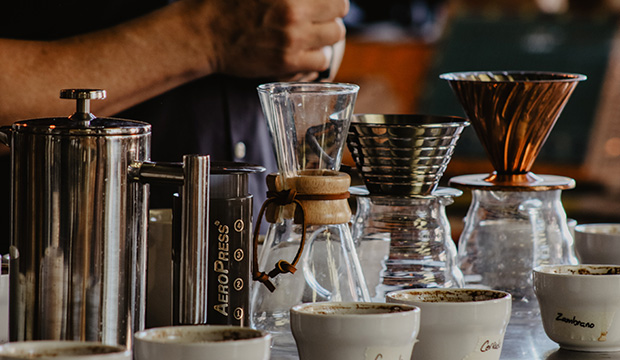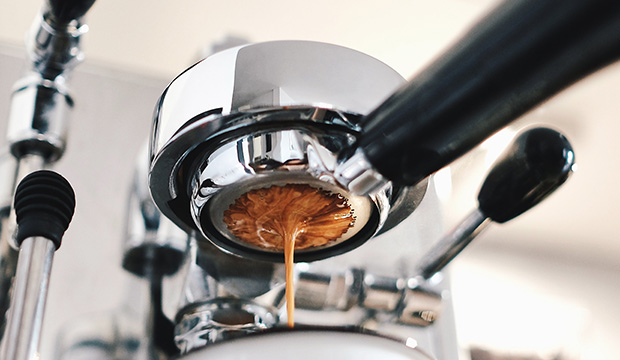 Espresso machine
Espresso machine
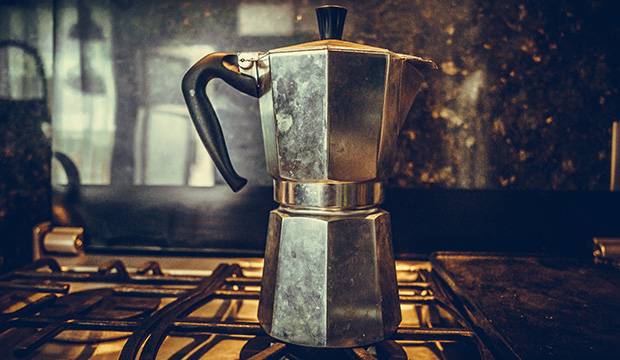 Moka pot
Moka pot
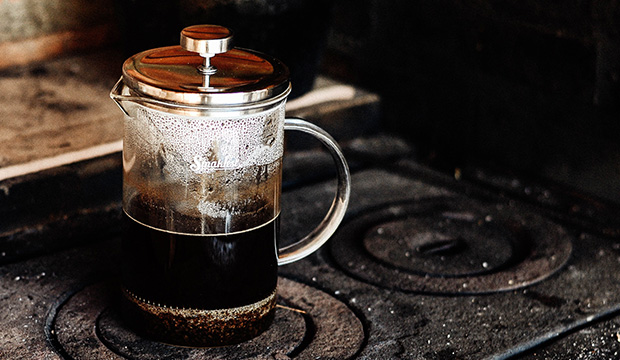 French Press
French Press
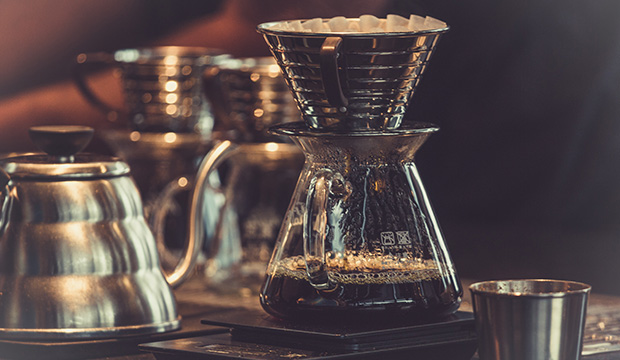 Filter coffee maker
Filter coffee maker
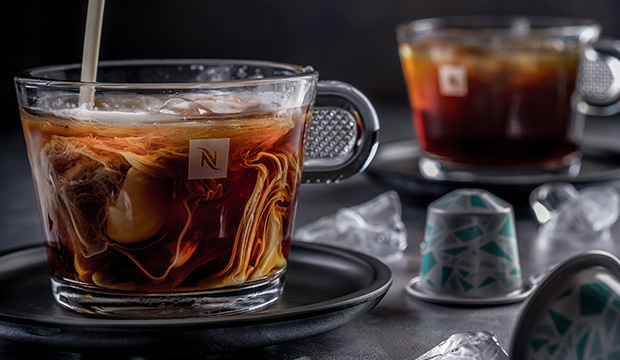 Capsule machine
Capsule machine
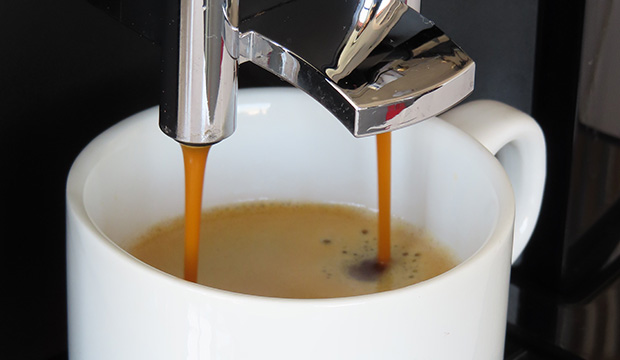 ESE Pods machine
ESE Pods machine
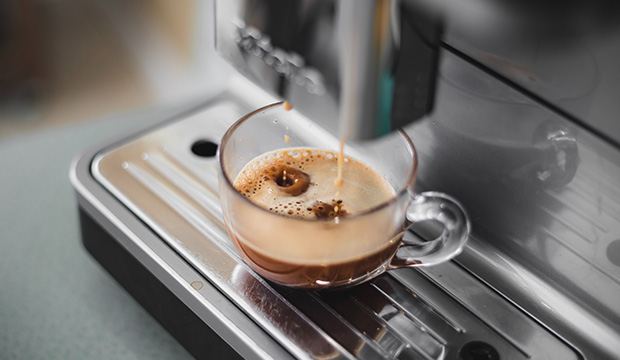 Automatic machine
Automatic machine

5-7 Workdays Article No. 1586
Aroma(s) : Floral, Fruity
Article No. 1586

5-7 Workdays Article No. 10165
Aroma(s) : Chocolaty, Floral, Fruity
Article No. 10165

5-7 Workdays Article No. 10913
Article No. 10913

5-7 Workdays Article No. 10876
Aroma(s) : Chocolaty, Nutty
Article No. 10876

5-7 Workdays Article No. 10874
Aroma(s) : Fruity
Article No. 10874
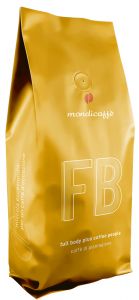
5-7 Workdays Article No. 10843
Article No. 10843
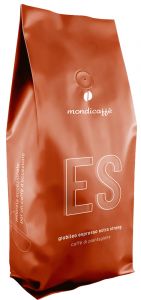
5-7 Workdays Article No. 10841
Aroma(s) : Chocolaty
Article No. 10841

5-7 Workdays Article No. 10842
Aroma(s) : Chocolaty
Article No. 10842

5-7 Workdays Article No. 1012
Aroma(s) : Chocolaty, Nutty
Article No. 1012

5-7 Workdays Article No. 10744
Aroma(s) : Chocolaty
Article No. 10744

5-7 Workdays Article No. 10783
Aroma(s) : Chocolaty, Nutty
Article No. 10783

5-7 Workdays Article No. 10782
Aroma(s) : Chocolaty, Nutty
Article No. 10782
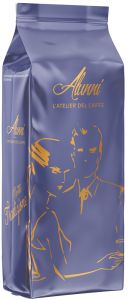
18-20
Workdays
Extended delivery time
Please note that if you purchase this item, you should expect a longer delivery time for your entire order. We cannot ship other items in your order, that are in stock, ahead of time.
Article No. 10739
Aroma(s) : Chocolaty, Nutty, Malty
Article No. 10739
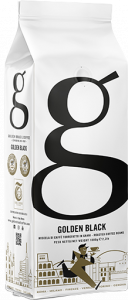
18-20
Workdays
Extended delivery time
Please note that if you purchase this item, you should expect a longer delivery time for your entire order. We cannot ship other items in your order, that are in stock, ahead of time.
Article No. 10740
Aroma(s) : Chocolaty, Almond, Floral, Fruity
Article No. 10740
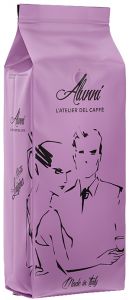
5-7 Workdays Article No. 10738
Aroma(s) : Nutty, Fruity
Article No. 10738
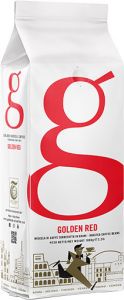
5-7 Workdays Article No. 10741
Aroma(s) : Malty, Fruity
Article No. 10741
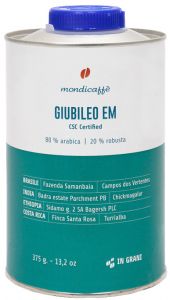
5-7 Workdays Article No. 10753
Aroma(s) : Chocolaty, Nutty
Article No. 10753
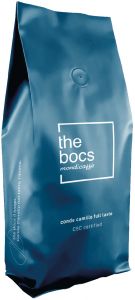
5-7 Workdays Article No. 10750
Aroma(s) : Chocolaty, Nutty, Fruity
Article No. 10750

5-7 Workdays Article No. 10763
Aroma(s) : Nutty, Floral
Article No. 10763

5-7 Workdays Article No. 10765
Aroma(s) : Chocolaty, Fruity
Article No. 10765

5-7 Workdays Article No. 10761
Article No. 10761

5-7 Workdays Article No. 10756
Aroma(s) : Nutty, Floral
Article No. 10756

5-7 Workdays Article No. 1753
Aroma(s) : Nutty, Floral
Article No. 1753

5-7 Workdays Article No. 1417
Aroma(s) : Chocolaty, Floral
Article No. 1417

5-7 Workdays Article No. 1053
Aroma(s) : Chocolaty, Nutty
Article No. 1053

5-7 Workdays Article No. 10730
Aroma(s) : Chocolaty, Nutty
Article No. 10730

5-7 Workdays Article No. 10731
Aroma(s) : Fruity
Article No. 10731
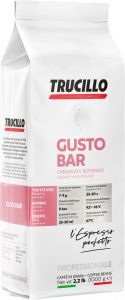
5-7 Workdays Article No. 10732
Aroma(s) : Chocolaty, Nutty
Article No. 10732

5-7 Workdays Article No. 10733
Aroma(s) : Almond
Article No. 10733

11-13
Workdays
Extended delivery time
Please note that if you purchase this item, you should expect a longer delivery time for your entire order. We cannot ship other items in your order, that are in stock, ahead of time.
Article No. 1545
Aroma(s) : Chocolaty, Malty
Article No. 1545

5-7 Workdays Article No. 1138
Aroma(s) : Chocolaty, Nutty
Article No. 1138

5-7 Workdays Article No. 1007
Aroma(s) : Chocolaty, Fruity
Article No. 1007

5-7 Workdays Article No. 10677
Aroma(s) : Chocolaty, Fruity
Article No. 10677

5-7 Workdays Article No. 1145
Aroma(s) : Chocolaty, Floral
Article No. 1145

5-7 Workdays Article No. 10678
Aroma(s) : Chocolaty, Nutty
Article No. 10678

5-7 Workdays Article No. 10681
Article No. 10681
The Ultimate Guide to Coffee Brewing Methods: From Timeless Classics to Modern Innovations
Coffee is more than just a beverage; for many, it’s a cherished ritual, an art form, and a key part of daily life. With so many brewing methods available, each offering a distinct taste and experience, it can be challenging to choose the right one. This comprehensive guide will introduce you to the most popular coffee brewing methods, offering insights, tips, and expert advice to help you create the perfect cup, no matter your preference.
Table of Contents

- 2. Classic Brewing Techniques
- 3. Modern Coffee Brewing Techniques
- 4. Innovative and Emerging Brewing Techniques
- 5. Selecting the Right Coffee Beans for Your Brewing Method
- 6. Expert Tips for Brewing the Perfect Cup
- 7. Common Mistakes to Avoid in Coffee Brewing
- 8. The Future of Coffee Brewing: Trends to Watch
- 9. Conclusion
1. Introduction to Coffee Brewing Methods
Coffee isn’t just a drink; it’s an experience that can be greatly enhanced by choosing the right brewing method. Each technique brings out different flavours and textures, highlighting the unique characteristics of the coffee beans. In this guide, you’ll discover popular brewing methods and gather essential tips to help you brew the perfect cup that suits your taste.
2. Classic Brewing Techniques
1.1 Drip Coffee
Drip coffee, often referred to as filter coffee, is one of the most popular brewing methods worldwide due to its convenience and consistency. This method involves hot water flowing evenly through ground coffee, extracting the flavours which then collect in a carafe. Drip coffee is particularly well-suited for brewing larger quantities, making it perfect for those who prefer a smooth and mild cup of coffee. Additionally, this method allows for easy control over the strength of the brew by adjusting the coffee-to-water ratio.
- Advantages: Simple to use, reliable results, can brew large quantities.
- Best For: Those who prefer a balanced, mild flavour.
1.2 French Press
The French press is a timeless coffee maker cherished for its simplicity and the rich, full-bodied flavours it produces. By fully immersing coarse coffee grounds in hot water, this method allows for a more complete extraction of oils and flavours, resulting in a robust, intense brew with a thick texture. It’s also an environmentally friendly choice since it doesn’t require paper filters, allowing the natural oils from the coffee to enhance the taste.
- Advantages: Full-bodied, rich flavour; no paper filter means more oils in the cup.
- Best For: Coffee drinkers who enjoy a strong, intense brew with a fuller mouthfeel.
1.3 Espresso
Espresso is the base of many popular coffee drinks, including lattes and cappuccinos, and is revered for its strong, concentrated flavour. This method uses high pressure to force hot water through finely-ground coffee, resulting in a small but intense shot of coffee. Beyond its bold flavour, espresso’s versatility allows it to be enjoyed on its own or used as the foundation for a variety of coffee-based beverages. Espresso machines also offer the advantage of customising the shot strength and temperature, making it a favourite among coffee enthusiasts.
- Advantages: Rich, intense flavour; forms the base for various coffee drinks.
- Best For: Those who enjoy a strong, bold coffee or specialty drinks.
1.4 Moka Pot
The Moka pot, also known as a stovetop espresso maker, is a common fixture in many Italian households. It brews coffee by using steam pressure to force water through coffee grounds, producing a strong, espresso-like coffee. This method is cherished for its affordability and the rich, intense flavour it yields, making it a popular choice among espresso lovers. The Moka pot’s unique design also makes it an excellent option for those who enjoy the ritual of brewing coffee, as it offers a more hands-on experience.
- Advantages: Affordable, durable, and produces a concentrated brew similar to espresso.
- Best For: Espresso lovers who prefer a more hands-on brewing method and appreciate the ritual of coffee making.
1.5 Turkish Coffee
Turkish coffee is one of the oldest brewing methods, offering a unique, unfiltered coffee experience that is deeply rooted in tradition. Finely ground coffee is simmered in water, often with sugar, and served directly in small cups, allowing the grounds to settle at the bottom. Known for its strong flavour and thick texture, Turkish coffee is often enjoyed slowly, making it more of a social experience. This method also allows for a more personalised flavour by adjusting the amount of sugar added during brewing.
- Advantages: Unique, intense flavour; cultural and historical significance.
- Best For: Those who appreciate strong, unfiltered coffee with a rich cultural heritage.
1.6 Portafilter Coffee
Portafilter coffee is typically used in espresso machines, where the portafilter holds the coffee grounds and ensures even extraction under pressure. This method is crucial for producing high-quality, consistent espresso shots, which are essential in professional coffee making. The portafilter's ability to maintain consistent pressure and temperature makes it highly valued by baristas and coffee aficionados who seek precision and control in their brewing process. Furthermore, using a portafilter allows for more experimentation with different grind sizes and tamping pressures to achieve the perfect shot.
- Advantages: High-quality, consistent espresso; essential for professional-grade coffee making.
- Best For: Espresso enthusiasts and baristas who value precision, consistency, and the ability to fine-tune their brewing process.
1.7 Filter Coffee
Filter coffee, commonly known as drip coffee, involves pouring hot water over coffee grounds contained in a filter, allowing the water to drip through into a carafe. This method produces a clean, light-bodied coffee that highlights the subtle flavours and aromas of the beans. It’s ideal for those who appreciate a smooth and easy-drinking coffee experience. Additionally, filter coffee's ability to be brewed in larger quantities makes it perfect for sharing, whether at home or in an office setting.
- Advantages: Clean, mild flavour; ideal for highlighting subtle coffee notes.
- Best For: Those who enjoy a smooth, easy-drinking coffee and prefer a brew that can be shared.
3. Modern Coffee Brewing Techniques
As coffee culture continues to evolve, modern brewing methods such as pour-over, AeroPress, and siphon have gained popularity for their ability to provide greater control over the brewing process. These techniques allow coffee enthusiasts to fine-tune variables like water temperature, grind size, and brew time, resulting in a more personalised and precise cup of coffee. They are particularly favoured by those who seek a clean, nuanced, and aromatic brew.
2.1 Pour-Over
Pour-over coffee has become a favourite among coffee aficionados due to the control it offers over the brewing process. By pouring hot water in a slow, circular motion over the coffee grounds, brewers can extract a clean and balanced cup. This method is appreciated for its ability to highlight the delicate and complex flavours of high-quality coffee beans, making it a go-to for those who enjoy a refined coffee experience. The pour-over technique also offers the flexibility to adjust brewing time and water temperature, allowing for a more customised cup of coffee.
- Advantages: Precise control over brewing time and temperature, clean and flavourful coffee.
- Best For: Coffee enthusiasts who enjoy a clean, nuanced cup and prefer a hands-on brewing process.
2.2 AeroPress
The AeroPress is a relatively new yet innovative brewing method that has quickly gained a loyal following. It uses air pressure to push hot water through coffee grounds, producing a smooth and rich brew in just a few minutes. The AeroPress is highly versatile, allowing users to experiment with different grind sizes, water temperatures, and brewing times to create a coffee that matches their exact preferences. Its portability and ease of use make it a favourite for coffee lovers who want to enjoy a high-quality brew at home or on the go. Additionally, the AeroPress's compact design makes it ideal for travel and outdoor adventures, ensuring a great cup of coffee anywhere.
- Advantages: Versatile, portable, and quick; allows experimentation with grind size and brew time.
- Best For: Those who enjoy experimenting with their coffee brewing process and need a portable solution.
2.3 Cold Brew
Cold brew coffee is made by steeping coarse coffee grounds in cold water for an extended period, typically 12 to 24 hours. This slow extraction process results in a smooth, less acidic coffee that can be served cold or hot, depending on your preference. Cold brew is known for its refreshing taste and versatility, as it can be easily mixed with milk, sweeteners, or flavours to create a variety of beverages. Its long shelf life also makes it a convenient option for those who like to prepare their coffee in advance. Moreover, the lower acidity of cold brew makes it gentler on the stomach, making it an excellent choice for those with sensitive digestion.
- Advantages: Smooth, low-acid coffee; can be stored in the fridge for days.
- Best For: Those who prefer a cold, refreshing coffee with low acidity and enjoy a brew that’s easy on the stomach.
2.4 Siphon
The siphon, or vacuum pot, is a visually captivating brewing method that combines science and art. It uses vapour pressure to force water into a chamber with coffee grounds, and then gravity pulls the brewed coffee back down into a separate chamber. The result is a clean, complex cup of coffee with a delicate flavour profile. The siphon is often considered a theatrical way to brew coffee, making it a popular choice for those who enjoy both the process and the final product. It’s particularly appreciated for its ability to highlight the subtleties and nuances of specialty coffee beans, offering an experience that’s as much about the journey as the destination.
- Advantages: Produces a delicate and flavourful coffee; a theatrical brewing process.
- Best For: Coffee aficionados who appreciate a refined and aromatic brew and enjoy the ritual of brewing coffee.
4. Innovative and Emerging Brewing Techniques
3.1 Nitro Coffee
Nitro coffee is an innovative twist on cold brew coffee, infused with nitrogen gas to create a smooth, creamy texture and a cascading, velvety head similar to that of a stout beer. Served cold, often on tap, nitro coffee is prized for its rich mouthfeel and slightly sweet flavour, even without added sugar. This method has become a popular choice in trendy cafés and among coffee enthusiasts who enjoy a unique, refreshing, and visually striking coffee experience. The nitro infusion not only enhances the texture but also creates a visually appealing cascade effect as the coffee is poured, making it a delight to both taste and behold.
- Advantages: Smooth, creamy texture; visually appealing.
- Best For: Those who enjoy a unique, creamy coffee experience and are looking for a refreshing alternative to traditional cold coffee.
3.2 Espresso Tonic
Espresso tonic is a refreshing and unexpected combination of a shot of espresso poured over tonic water and ice. The result is a drink that balances the bitterness of the espresso with the effervescence and slight sweetness of the tonic water, creating a complex and invigorating flavour profile. This modern coffee cocktail is perfect for those looking to try something new and is particularly popular in warmer weather or as a midday pick-me-up. The contrast between the rich espresso and the crisp tonic water makes this drink a fascinating choice for adventurous coffee lovers.
- Advantages: Refreshing and unique; combines coffee with the complexity of tonic water.
- Best For: Coffee lovers looking for a new, invigorating experience that challenges traditional coffee norms.
3.3 Nespresso Pods
Nespresso pods have revolutionised home coffee brewing by offering convenience and consistency in a compact, user-friendly package. These single-serve pods are compatible with Nespresso machines, which brew a variety of coffee styles, from espressos to lungos, with the touch of a button. Nespresso pods are available in a wide range of flavours and intensities, making them a popular choice for busy individuals who want to enjoy high-quality coffee with minimal effort and no mess. Additionally, the precision of Nespresso machines ensures a consistently good cup of coffee every time, making it an ideal solution for those who prioritise convenience and quality.
- Advantages: Quick, easy, and consistent; wide range of flavours and strengths.
- Best For: Busy individuals who value convenience without sacrificing quality and appreciate a hassle-free brewing experience.
3.4 ESE Coffee Pods
ESE (Easy Serving Espresso) coffee pods are a standardised format that offers a convenient way to brew espresso without the hassle of grinding beans or tamping grounds. These pre-measured, individually wrapped pods are compatible with many espresso machines, making it easy to enjoy a consistent and mess-free espresso at home. ESE pods are particularly popular among those who value simplicity and consistency, as they take the guesswork out of espresso preparation while delivering a quality cup. Moreover, the environmentally friendly packaging of ESE pods appeals to eco-conscious consumers who want to reduce waste.
- Advantages: Convenient, mess-free, and consistent; ideal for espresso lovers.
- Best For: Those who enjoy espresso but prefer a quicker and easier preparation method with minimal cleanup.
3.5 Coffee Automatic Machines
Coffee automatic machines are designed to deliver café-quality coffee with minimal user intervention, making them perfect for those who appreciate convenience without sacrificing quality. These machines often come equipped with features such as built-in grinders, milk frothers, and customisable brewing settings, allowing users to create everything from a simple black coffee to a complex cappuccino at the push of a button. Automatic coffee machines are ideal for busy households or offices where a variety of coffee drinks are desired quickly and effortlessly. The programmability of these machines also allows users to tailor their coffee exactly to their preferences, ensuring a perfect cup every time.
- Advantages: Consistent, high-quality coffee; fully automated process.
- Best For: Coffee lovers who want a premium coffee experience at home without the effort, and those who appreciate the convenience of automation.
5. Selecting the Right Coffee Beans for Your Brewing Method
Different brewing methods bring out different characteristics in coffee beans. Understanding the best type of beans for your preferred method can significantly enhance your coffee experience.
- Espresso: Choose dark roast beans for a rich, intense flavour.
- French Press: Opt for medium to dark roast beans with a coarse grind.
- Cold Brew: Light to medium roast beans work best to highlight fruity and floral notes.
6. Expert Tips for Brewing the Perfect Cup
5.1 Water Quality
The quality of water used in brewing significantly impacts the taste of coffee. Use filtered water with balanced mineral content for the best results.
5.2 Grind Size
 Grind size is crucial for proper extraction. Fine grinds are best for espresso, while coarser grinds are more suitable for methods like French Press.
Grind size is crucial for proper extraction. Fine grinds are best for espresso, while coarser grinds are more suitable for methods like French Press.
5.3 Brew Time and Temperature
Each brewing method has an optimal brew time and temperature. For instance, espresso requires water heated to 90-96°C, while cold brew needs 12-24 hours of steeping at room temperature.
7. Common Mistakes to Avoid in Coffee Brewing
Even experienced coffee brewers can make mistakes. Common pitfalls include using the wrong grind size, incorrect water temperature, and improper brewing time. Avoid these to ensure a perfect cup every time.
8. The Future of Coffee Brewing: Trends to Watch
The coffee industry is constantly evolving, with emerging trends like sustainable coffee production, smart coffee makers, and personalised brewing experiences. Keeping up with these trends will help you stay ahead in your coffee journey.
9. Conclusion
With so many coffee brewing methods available, there’s something for everyone, from traditionalists to modernists. Whether you prefer the boldness of espresso, the clarity of pour-over, or the innovation of nitro coffee, understanding these methods will enhance your appreciation and enjoyment of coffee. By experimenting with different techniques and paying attention to details like water quality and grind size, you can brew a cup that’s perfect for you every time.
|
You might also like: |
External Authority Sources: |

